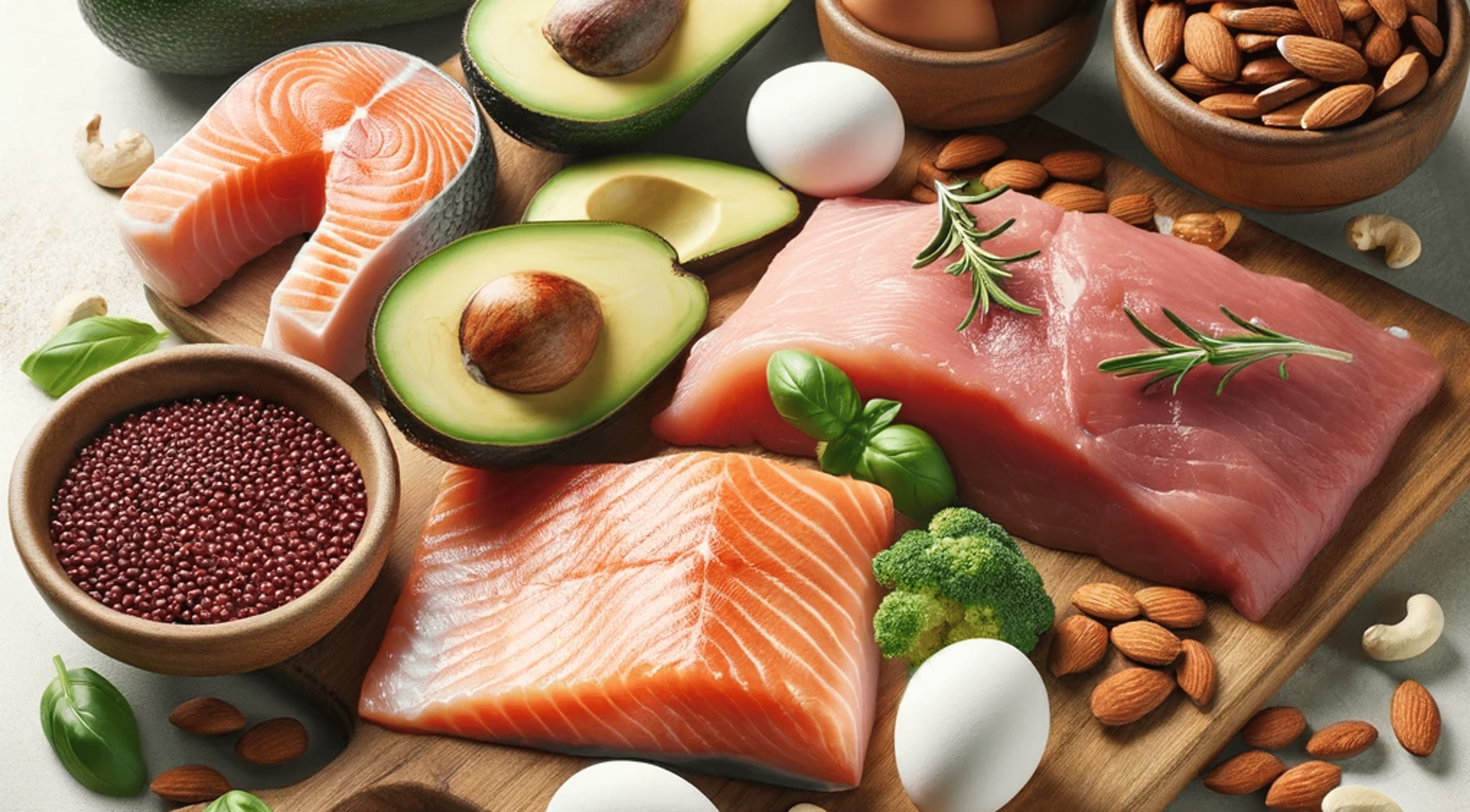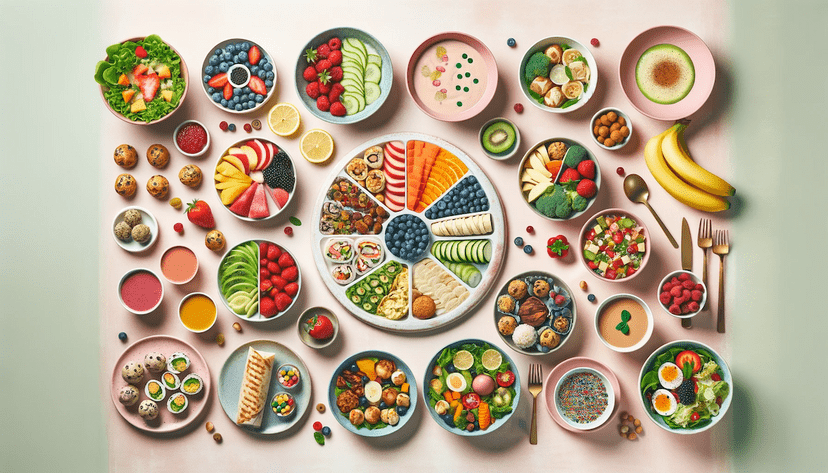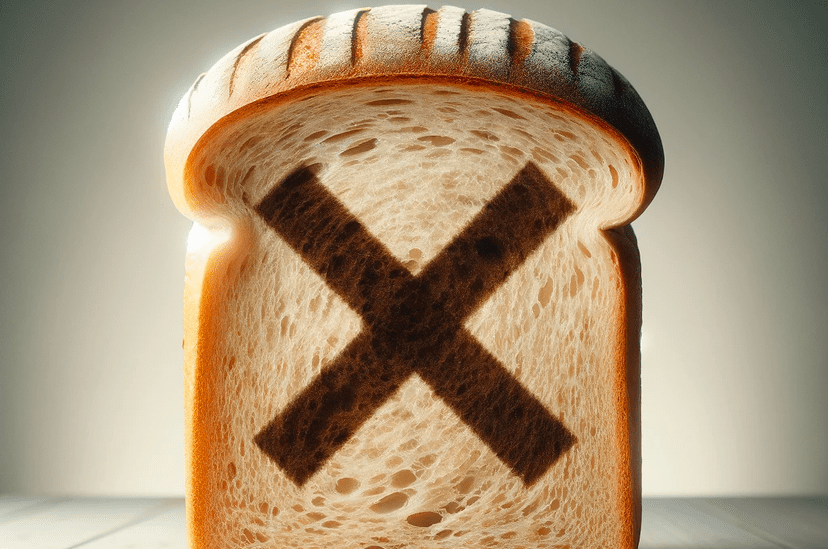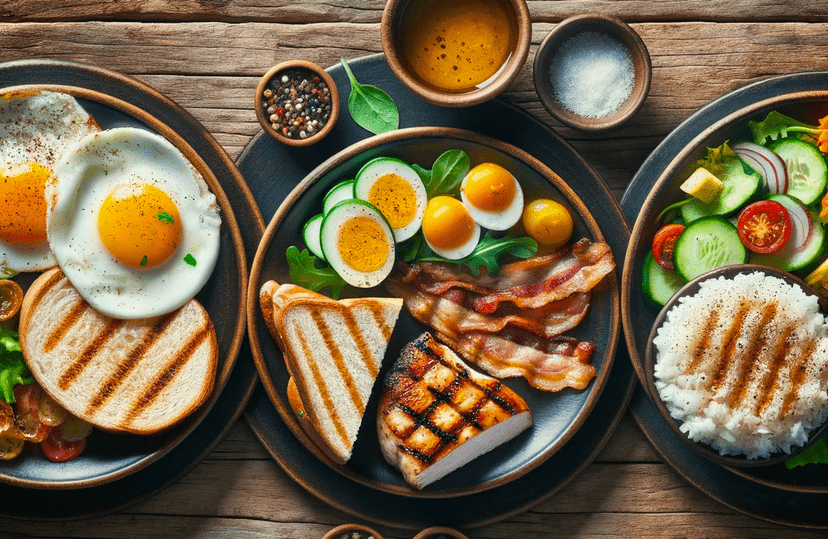Is Protein the Key to Weight Loss? (ANSWERED)

Understanding the Role of Protein in Weight Loss
Protein is an essential part of our diet, and it has a key role to play in managing our weight. Let's dive deeper into the intricate connections between protein, metabolism, satiety, and muscle maintenance. We aim to present a scientific basis for understanding how protein consumption can prove instrumental in the journey of weight loss.
Protein and Metabolism
Firstly, protein has a relatively higher thermic effect than other macronutrients like carbohydrates and fats. Thermic effect refers to the amount of energy the body requires to digest, absorb and process the nutrients in your food. Protein's thermic effect is nearly 20-30% while that of fats and carbs is considerably lower. This essentially means that the body uses more energy and burns more calories to process proteins than it does to process carbs and fats - leading to an increase in metabolic rate.
Satiety and Calorie Control
Protein is also known for its capacity to increase satiety, or the feeling of fullness after eating. This makes us likely to consume fewer calories throughout the day, aiding weight loss. Several scientific studies have found that high-protein diets can help with reducing late-night snack cravings and the desire for snacking. Eating less due to the feeling of fullness brought by protein helps achieve a calorie deficit - the key to weight loss.
Muscle Maintenance and Weight loss
Lastly, protein intake is critical during weight loss because it helps maintain muscle mass. During a calorie deficit, the body may use muscle tissue for energy. Consuming adequate protein protects the body from losing muscle tissue and ensures that the weight we lose is primarily body fat. Moreover, since muscles are metabolically more active than fat cells, maintaining muscles can help increase the basal metabolic rate (the rate at which you burn calories while at rest), again assisting in weight loss.
In conclusion, the fundamental role of protein in our body's metabolic processes cannot be overstated. From increasing metabolism and boosting satiety to preserving muscle mass, protein can significantly influence one's weight management goals.
Comparing Protein-rich Diets to Other Diet Types
When analysing the effectiveness of protein-rich diets in terms of weight loss, it's crucial to bear in mind that they are not the only option, nor are they necessarily the most suitable for everyone. There are indeed other popular dietary approaches with distinct macronutrient distribution, goals, and potential benefits. Here, we illustrate how high-protein diets compare to some of these dietary strategies.
High-Protein vs Low-Carb Diets
Low-carb diets, like the Atkins or Ketogenic diet, are aimed at reducing carbohydrate intake, thereby pushing the body to use fats as its primary energy source. These diets are often high in protein as well, although protein is not the primary focus, as in a protein-intensive diet.
From a weight loss perspective, both diets can be effective in the short term. A study published in the Journal of the American Medical Association found that people on both high-protein and low-carb diets lost similar amounts of weight over a year.
However, the critical distinction lies in the likely longer-term impact on overall health. High-protein diets tend to be more balanced, ensuring adequate intake of fiber and other essential nutrients from a variety of food sources. Conversely, very low-carb diets can lead to nutrient deficiencies if not carefully planned and may be associated with increased risks of heart diseases due to high intake of fatty meats and dairy products.
Protein Intake in Plant-Based Diets
Plant-based diets stand out for their high content of fiber, vitamins, and minerals. While it's entirely possible to meet protein needs from plants, it requires careful planning and a diversity of protein sources, including legumes, whole grains, nuts, and seeds, to ensure adequate intake of all essential amino acids.
Importantly, a plant-based diet does not have to mean a vegan or vegetarian diet. According to a review published in the Advances in Nutrition, adopting a plant-based diet with lean animal proteins can also facilitate weight loss while providing a comprehensive nutrient profile.
Balancing a High-Protein Diet with Other Nutrients
Lastly, regardless of the type of diet you choose, balancing nutrient intake is paramount. A high-protein diet should not translate into an absolute neglect of other macronutrients. For a weight loss-focused, high-protein diet to be sustainable and health-promoting, it must include:
- High-quality protein sources like lean meats, dairy, legumes, and plant-based protein
- Optimized carbohydrate intake, focusing on complex carbohydrates from whole grains, fruits, and vegetables
- Balanced healthy fat consumption, primarily from monounsaturated and polyunsaturated fats, limiting saturated and avoid trans fats
- A range of fruits and vegetables for fiber, vitamins, and minerals
To summarize, protein certainly plays a key role in weight loss, but it's merely one gear in a larger network of dietary decisions and lifestyle factors. A higher protein intake can be a potent tool for weight loss, but it's crucial to mesh it into a balanced, nutrient-rich, and sustainable diet that respects individual preferences and needs.
Practical tips for incorporating more protein into your diet
In the pursuit of weight loss, protein often stands as an essential nutrient in our diet. But how can one incorporate more protein into their diet effectively and healthily? Here, we aim to provide practical advice and tips tailored for different dietary preferences and lifestyles.
Identifying high-quality protein sources
The first step towards integrating more protein into your diet includes the identification of high-quality protein sources. High-quality proteins, also known as complete proteins, contain all essential amino acids necessary for our bodies. Animal-derived foods such as lean meats, poultry, fish, eggs, and dairy products are rich in high-quality proteins. For those who follow vegetarian or vegan diets, some plant-based proteins such as quinoa, soy, and chia seeds are excellent complete proteins. Moreover, combining different plant-based proteins in your meals, such as lentils and brown rice, can provide all essential amino acids.
Incorporating protein into each meal
The next important step is incorporating protein into each meal. Rather than consuming all your protein in one meal, studies suggest that distributing your protein intake evenly across meals can optimize muscle protein synthesis and keep you feeling satisfied longer, which may aid weight loss. For breakfast, consider having eggs or Greek yogurt. For lunch and dinner, items like grilled chicken, tofu, fish, or beans are healthy choices. Including a side of legumes, seeds, or dairy can also up your protein intake. And don't forget snacks – a handful of nuts, protein bars, or cottage cheese can keep your protein levels steady throughout the day.
Understanding protein supplements
Lastly, it's also important to understand protein supplements and their role in your diet. Protein supplements like whey protein and plant-based protein powders can be a convenient way to boost your protein intake, especially for individuals who struggle to meet their protein needs through food or those who exercise intensely. However, supplements should not replace whole foods that offer a range of other essential nutrients. Always remember, supplements are to supplement your diet, not to be the main source of your nutrients.
Adopting these practical strategies is a step in the right direction, allowing you to effectively and healthily incorporate more protein into your diet. Remember to seek tailored advice from a dietitian or healthcare professional as individuals' needs can vary based on factors like age, gender, activities level, and health conditions.
In Summary
We've delved into the role of protein in weight management, shedding light on how protein affects metabolism, satiety, and muscle maintenance. We've also discussed the comparison of protein-rich diets with other diets like low-carb and plant-based diets. Lastly, we've provided practical tips for incorporating more protein into your diet.
It is crucial to understand that while protein is integral for weight loss and maintenance, it's just one piece of the larger health and wellness puzzle. A balanced diet encompassing all macronutrients, regular exercise, and a healthy lifestyle are all equally important.
Here's a simple plan of action and action steps to implement the insights from the blog post:
-
Understand the role of protein: Review and understand the role of protein in boosting metabolism, increasing satiety, and preserving muscle mass during weight loss.
-
Choose a suitable diet plan: If you're considering a high-protein diet, make sure that it is balanced with other nutrients. If you're choosing other diet plans like low-carb or plant-based, understand their benefits and downsides, and ensure the necessary protein intake is met.
-
Incorporate high-quality proteins: Identify high-quality protein sources suitable for your dietary preference, budget, and availability. Choose from lean meats, poultry, fish, eggs, dairy, and plant-based protein like quinoa, soy, lentils, and chia seeds.
-
Evenly distribute protein: Instead of loading up on protein in one meal, try to incorporate it into each meal. This could mean eggs or Greek yogurt for breakfast, tofu, or grilled chicken for lunch and dinner, with nuts or cottage cheese as snacks.
-
Consider protein supplements wisely: If it's challenging to meet protein needs through food alone, you might consider protein supplements. However, these should not replace whole foods which provide a range of other essential nutrients.
-
Consult a professional: As individual needs can differ greatly, it may be beneficial to seek advice from a dietitian or a healthcare professional who can provide a personalized nutrition plan.
In conclusion, it's crucial to maintain a balanced approach, prioritizing both the quantity and quality of protein, and other macronutrients, while also taking into account individual dietary preferences and health conditions.
![Does a 400 and 600 Calorie Diet Plan Help Weight Loss?[ANSWERED]](https://img.imageboss.me/onestep/width/828/format:auto,quality:80/assets/site/blog/does-a-400-and-600-calorie-diet-plan-help-weight-loss.png)
![How Many Calories Does 10,000 Steps Burn? [ANSWERED]](https://img.imageboss.me/onestep/width/828/format:auto,quality:80/assets/site/blog/how-many-calories-does-10000-steps-burn.png)









